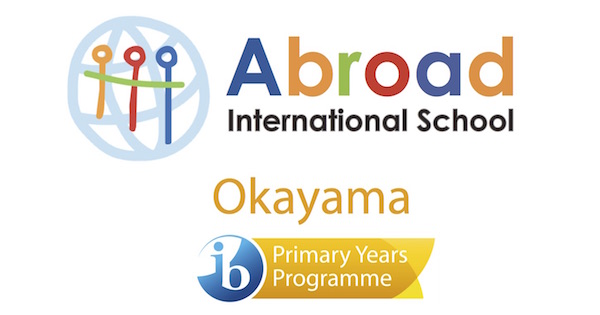
A Well balanced curriculum for independent, knowledgeable and internationally minded individuals.
The curriculum implemented at Abroad International School is designed to promote early years development. Through a range of educational activities, we encourage the skills that are essential to children becoming healthy, independent and knowledgeable individuals. Key areas of focus are; basic educational principles (i.e. Mathematics, Science, Language Arts), Physical advancement of Fine and Gross motor skills, understanding and attainment of emotional and social well-being. Children are encouraged to communicate their needs and opinions and are introduced to varied topics which allows for the children to have the ability to speak in various situations. Furthermore, by providing opportunities for children to explore and discover the world around them, children play an active role in their own education.
| LITERACY AND LANGUAGE DEVELOPMENT |
| Produces oral rhymes |
| Dictates words, phrases, ideas, experiences, story events, sentences |
| Uses pictures, signs, symbols to represent oral language, ideas, stories |
| Contributes to shared writing |
| Listens daily to fluent and expressive formal and informal texts |
| Recites with expression and rhythm |
| Matches/produces words with same beginning sound |
| Makes and confirms predictions |
| Makes connections using illustrations/photos, prior knowledge, real-life experiences |
| Identifies the source of environmental sounds |
| Expresses familiar routines, tells simple personal narratives or memories |
| Identifies the meaning of content-specific vocabulary |
| Makes connections between oral language and print |
| Blends, segments, claps syllables |
| Names, describes actual or pictured objects through receptive language |
| Uses position, sensory, and temporal words |
| Determines cause and effect; compares and contrasts; categories and classifies |
| Speaks in large/small groups, formal/informal settings |
| Begins to notice the beginning letters in familiar words |
| Progresses in clarity of pronunciation |
| Listens to and discusses literary multicultural texts, songs and oral stories |
| Focuses on letter names and shapes |
| Experiments daily with a variety of writing surfaces and materials |
| Uses props to convey meaning |
| Uses newly learned vocabulary on multiple occasions and in new contexts |
| Identifies a wide variety of objects through receptive language |
| Derives meaning from non-verbal and verbal cues |
| SOCIAL STUDIES |
| Demonstrates positive human attributes, relationships, roles, and social skills |
| Recalls and explains sequence of events |
| Learns important information about his/her immediate area |
| Begins to understand roles, responsibilities, services provided by community workers |
| Understands basic human needs for food, clothing, shelter |
| Recognizes qualities, interests, skills, traditions, experiences that make people unique |
| MATH |
| Recognizes numerals 1 through 10 (or higher) |
| Begins to use ordinal numbers from first to fifth |
| Identifies first, middle, and last in a series |
| Counts by ones to ten or higher (by rote) |
| Compares and contrasts objects |
| Recognizes, names, describes, compares, combines, shapes and solids |
| Reproduces patterns of sound and physical movement |
| Reproduces simple patterns |
| Supports or refutes mathematical statements or solutions |
| Expresses mathematical ideas orally and with concrete materials |
| Uses language associated with time in everyday situations |
| SCIENCE |
| Asks questions about and investigates objects, events, and organisms |
| Uses senses to investigate objects, events, organisms |
| Compares and contrasts data |
| Describes sequences and patterns found in nature |
| Recognizes that living things have similar needs for water, food, and air |
| Expands knowledge and respect for own body and the environment |
| Observes and describes weather and seasonal changes |
| Makes predictions |
| Observes and explores how materials change, react, and interact when combined |
| Investigates states of matter (solids and liquids) |
| PHYSICAL DEVELOPMENT |
| Explores balance |
| Develops strength and endurance |
| Moves in rhythm |
| Strengthens bilateral co-ordination |
| Develops strength, dexterity, and control needed to use tools and materials |
| Uses writing and drawing tools with control and intention |
| Coordinates hand and eye movements |
| Practices routine healthy behaviors |
| Learns to use tools, utensils, and materials safely |
| Builds an understanding of directionality and position in space |
| Explores manipulative toys |
| FINE ARTS |
| Uses language as part of dramatic play |
| Shares ideas about personal artwork |
| Dramatizes stories, experiences, poems, finger plays, moods |
| Creates original work |
| Recalls words in a song or finger play |
| Participates in classroom music activities |
| Expresses feelings through movement |
| Engages in dramatic play with others |
| SOCIAL EMOTIONAL DEVELOPMENT |
| Identifies self by categories (for example, gender, age, family relationship) |
| Knows own first and last name |
| Helps establish rules, routines |
| Connects actions and consequences |
| Accepts responsibility for own behavior |
| Expresses and manages feelings, needs, opinions |
| Demonstrates increasing independence |
| Shows curiosity in new experiences |
| Follows familiar routines independently |
| Asks for help when needed |
| Stays with or repeats a task |
| Respects differences |
| Respects rights and property of self and others |
| Contributes to classroom responsibility (takes on jobs) |
| Shares and cooperates |
| Initiates play situations |
| Shows concern about rules and group expectations |
| Shows empathy |
| Uses good manners |
| Takes turns and shares |
| Works with others to solve problems |
| Helps others in need |
| MEDIA |
| Uses various media to document and communicate meaningful experiences |
| Enjoys using electronic forms of storybooks and information texts |




